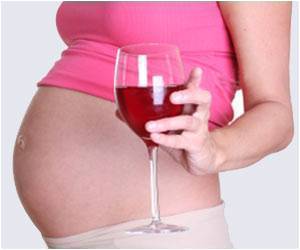Highlights:
- Fetal alcohol syndrome refers to the various neurological and physical complications in the fetus associated with maternal alcohol intake.
- Fetal alcohol syndrome is the most important cause of preventable mental handicap in children in the Western world.
- Fetal alcohol syndrome day is observed on the 9th September annually aims to raise awareness about the dangers to the fetus if the mother drinks alcohol during pregnancy.
Importance of Fetal Alcohol Syndrome Awareness Day - Urgent Need of The Hour
Living in this modern age, social drinking has come to be a widely accepted social practice cutting across age and gender barriers. Unfortunately, not many are aware of the dangers of consuming alcohol during pregnancy, and the untold risks to the fetus. Did you know that there is no safe amount of alcohol that can be consumed during pregnancy. Even the smallest amount of alcohol could potentially cause serious harm to the baby. Sadly, fetal alcohol syndrome remains the single largest reason for occurrence of preventable mental handicap in children in the developed countries where alcohol consumption is quite heavy.Studies indicate that nearly 1 in 20 school children in the US may come under the fetal alcohol spectrum disorder (FASD), a rate similar to that of autism.
It is essential that everyone in the community, irrespective of age or sex is made aware of the dangers of alcohol during pregnancy and behave responsibly to avert any mishaps.
Birth of Fetal Alcohol Syndrome Awareness day – 9:09 AM 9th September 1999
Bonnie Buxton and her husband Brian Philcox and their friend Teresa Kellerman were parents of children diagnosed with fetal alcohol syndrome. They spent their daily lives with children whose prenatal exposure to alcohol led to learning disabilities, behavioral issues and even physical defects needing constant medical attention.At the time, in the 1990s, there was hardly any awareness of FASD either among public, or even health professionals. They were forced to seek help for their problems on the online support group, Faslink.
It was Buxton who thought about starting an international FAS Awareness Day to help such families and decided upon the date as 9th September, as it also symbolically commemorates the nine months of pregnancy. Thus, the first FAS awareness day was born in New Zealand on the 9th September 1999 at 09:09 AM
Since then the FAS Awareness Day has become an international movement spread across several countries and is observed worldwide on the 9th September, aiming to create awareness and educate the community about the ill effects of alcohol in general, during pregnancy in particular.
Raising Awareness About Fetal Alcohol Syndrome
There are several ways in which the awareness can be spread to reach as many persons as possible. Some of these (by no means exhaustive) include the following:- Use of social media such as Facebook and Twitter to post messages about the dangers of alcohol and persons can share their stories using the hashtag #FASDMonth and #FASDay.
- Events can be organized in the community at the local school, park, church or even market place. Pamphlets may be distributed, street plays may be held or inspiring talks may be given to educate the people.
- Support groups and volunteers can create postcards with catchy messages and distribute them to local shops and businesses to spread the word.
- The local administration could also be involved to add weight to the campaign and the local representative could be invited to address the community about the condition.
- Articles, write-ups and messages about the condition may be brought out in the print media.
- Women’s clinics and local general practitioners could carry prominent messages in their practices about dangers of alcohol during pregnancy.
- In general the rampant use of alcohol, especially in the young should be discouraged and they should be educated and counseled appropriately.
- Strict legislations should be in place to discourage and prevent under-age and teen drinking. Psychological help and counseling must be offered to such kids.
- Walkathons or picnics may be organized in the community to create awareness about
- fetal alcohol syndrome and raise funds for organizations working to promote fetal alcohol syndrome awareness.
How Alcohol Affects the Fetus and Tips To Prevent FAS Occurrence
Alcohol intake during pregnancy can affect the baby’s physical, mental, behavioral, and intellectual development.- The most evident condition of fetal alcohol spectrum disorders, namely fetal alcohol syndrome (FAS), is characterized by visual and hearing defects, heart and kidney abnormalities, limb defects specific facial characteristics and impaired nervous system development including learning disabilities and behavioral problems.
- Prenatal exposure to alcohol is associated with an increased risk of miscarriage, prematurity, stillbirth and sudden infant death syndrome (SIDS).
- No amount of alcohol can be considered safe. All alcoholic beverages are bad including beer and wine.
- No period in pregnancy is considered safe to consume alcohol. In fact women in the reproductive age, would do well to stay away from alcohol as more than half the pregnancies are unplanned and unknowingly exposing the fetus to alcohol before the woman realizes she is pregnant is a definite and scary possibility.
- Women with a drinking problem should seek help before deciding to start a family. Husbands and partners can be supportive of their wives and girlfriends by staying away from alcohol as well during the pregnancy.
References:
- Fasd Awareness Month/Day 2017 Packet - (https://www.nofas.org/wp-content/uploads/2017/07/2017-FASD-Awareness-Month-Packet-FINAL.pdf)















